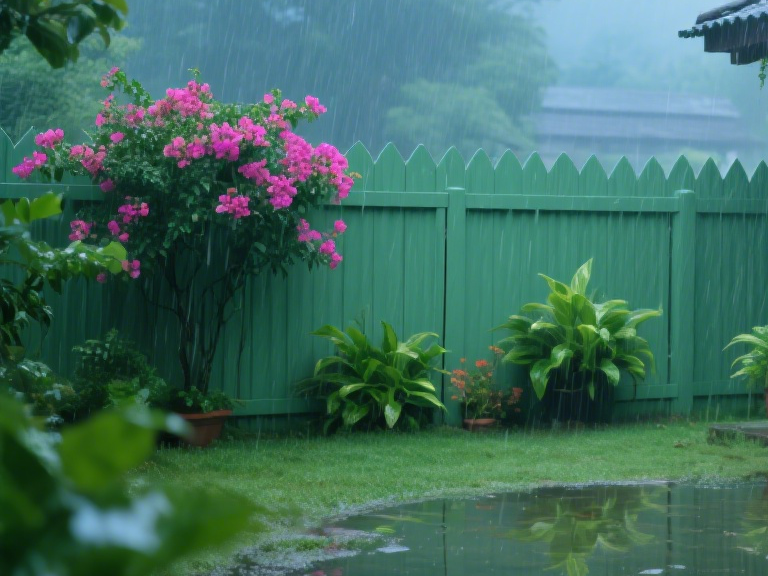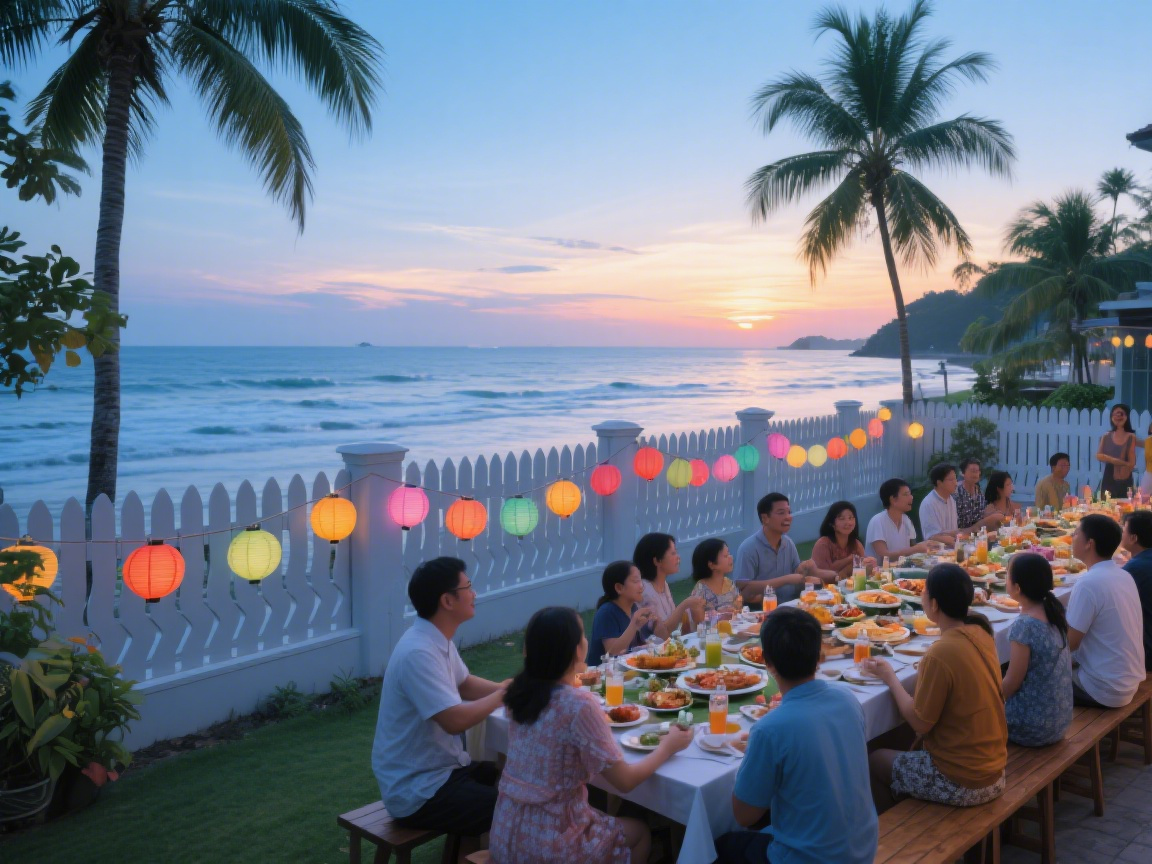In the hot and humid Southeast Asia, year-round high temperatures, heavy rainfall, and frequent monsoons pose significant challenges to courtyard facilities. Traditional fencing materials are vulnerable to moisture erosion and pest infestations, while PVC fences have become the new favorite for Southeast Asian families due to their excellent moisture-proof, anti-corrosion properties, and diverse designs. The Sawatdee family in Chiang Mai, Thailand, and Mr. Chen’s family in Penang, Malaysia, vividly demonstrate how PVC fences inject new vitality into courtyard life.
Chiang Mai, Thailand: A Green Barrier Against Rainy Seasons and High Temperatures
The Sawatdee family lives on the outskirts of Chiang Mai, where the rainy season lasts for half a year, air humidity remains above 80% year-round, and summer temperatures often exceed 35°C. Their previous bamboo fence quickly molded and rotted in the humid environment, with termites hollowing out the joints. After several heavy rains, it became unstable. High temperatures also caused the bamboo to crack, losing its protective function and posing safety hazards due to sharp edges. Maintaining the fence required significant annual investment, but the problem persisted.
At a local building materials exhibition, Sawatdee was attracted to a green PVC fence with imitation vine textures. Made of high-weather resistance materials with anti-mildew agents, it stayed dry in high humidity; the special surface coating reflected sunlight to prevent heat-induced softening. The 2-meter-high PVC fence, installed as a sturdy green barrier, featured realistic vine patterns blending with Chiang Mai’s tropical scenery. Hollow lattice designs ensured ventilation and provided support for climbing plants. Now, Sawatdee has planted bougainvillea and pothos inside the fence. During the rainy season, the family can relax in the courtyard without worrying about fence damage, enjoying tea as flowers bloom amid the green fence.

Penang, Malaysia: A Stylish Defense Against Sea Winds and Salt Spray
Mr. Chen’s family resides in a coastal community in Penang, where strong sea winds and high salt content in the air cause metal fences to rust rapidly and wooden fences to decay from seawater intrusion. Their previous iron fence became heavily rusted within three years, with some rails breaking, compromising safety and aesthetics.
Recommended by friends, Mr. Chen chose a PVC fence: a 1.8-meter-high light gray model with wave patterns, embedded in a concrete foundation for stability. Formulated to resist salt and alkali, it withstood long-term sea wind and salt spray; the smooth surface repelled water, staying clean after rain. The curved top design dispersed wind force, remaining stable even during typhoons. The sleek PVC fence added a modern touch to the courtyard, complementing Penang’s unique Nanyang architectural style. Mr. Chen created a small tropical garden with coconut trees and ferns, adding a hammock for relaxation. The family now enjoys the sea breeze and waves from their courtyard, free from corrosion concerns.

In tropical Southeast Asia, PVC fences have become the ideal choice for family courtyards, combining moisture-proof, anti-corrosion, and wind-resistant properties with flexible designs. They not only provide safe, comfortable outdoor spaces but also blend with regional characteristics, transforming each courtyard into a unique tropical lifestyle canvas.
